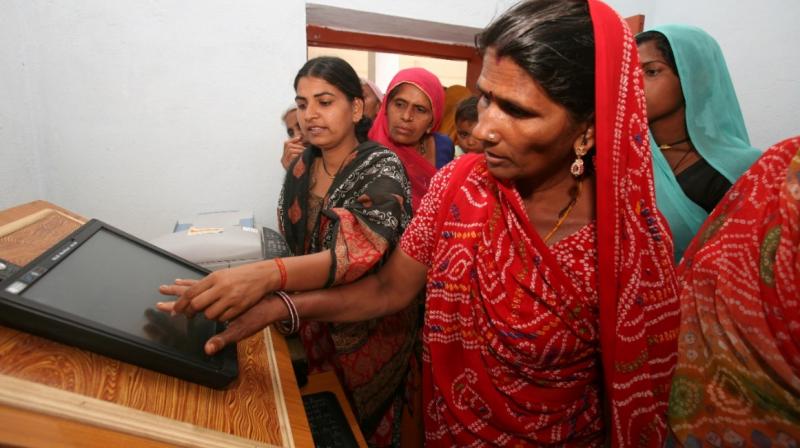UNDP project trains 500 weavers

HYDERABAD: Around 2,000 women weavers from Siddipet, Yadadri, Nalgonda and Warangal are having a taste of success.
Disha, a project held in collaboration with the United Nations Development Project (UNDP) and Creative Bee, supported by IKEA Foundation, has been teaching 2,000 women weavers on how to enhance their livelihood by direct market linkage and improving their production quality.
Nearly 500 weavers underwent training on dyeing, weaving, entrepreneurial skills, marketing and also career guidance and counselling in their pilot project. Over 30 weavers from the group held an exhibition with the help of the project officials getting a taste of the city for the first time, away from their villages.
Bina Rao, director of Creative Bee, said that they are teaching the pulse of the market to these talented weavers. “They are used to weaving sarees with huge borders but after seeing the sale of these sarees going down, they have begun weaving differently and now it is selling like hot cakes,” she said. She also stated that the dyes used by many handloom weavers were carcinogenic like naphthol dyes. “It is a misconception that organic dyes are expensive. Most dyes sold in the villages are sold without names on the packets. This project will also lead to many more managerial jobs,” Bina said.
The women weavers stated that it is not just a way to earn their livelihood without being conned by middlemen but it also helps break stereotypes. “My husband has been very supportive of me joining this project. No one has stopped us from the village and we are in fact, encouraged by our elders to learn these new methods. When we see that the dyes introduced to us do not wash away, we realise how much more market value can be added to our products,” a weaver from Siddipet said.
Dibya Prasad Singh, State Project Officer said that in handloom, you can change the pattern every 10 metres but that is not possible in a power loom. “There will be a difference of about 25 per cent in the prices between the two but the hard work that goes behind it for at least 20 days for handloom is worth the price. Before this project, the weavers were getting only Rs 100 per day. The comfort that original handloom and non-chemical dyes give is addicting,” Dibya said.
Gurpreet Kaur Bhatia, the state project head said that they had received a lot of support from the government as well with all the District Collectors pledging their support.

